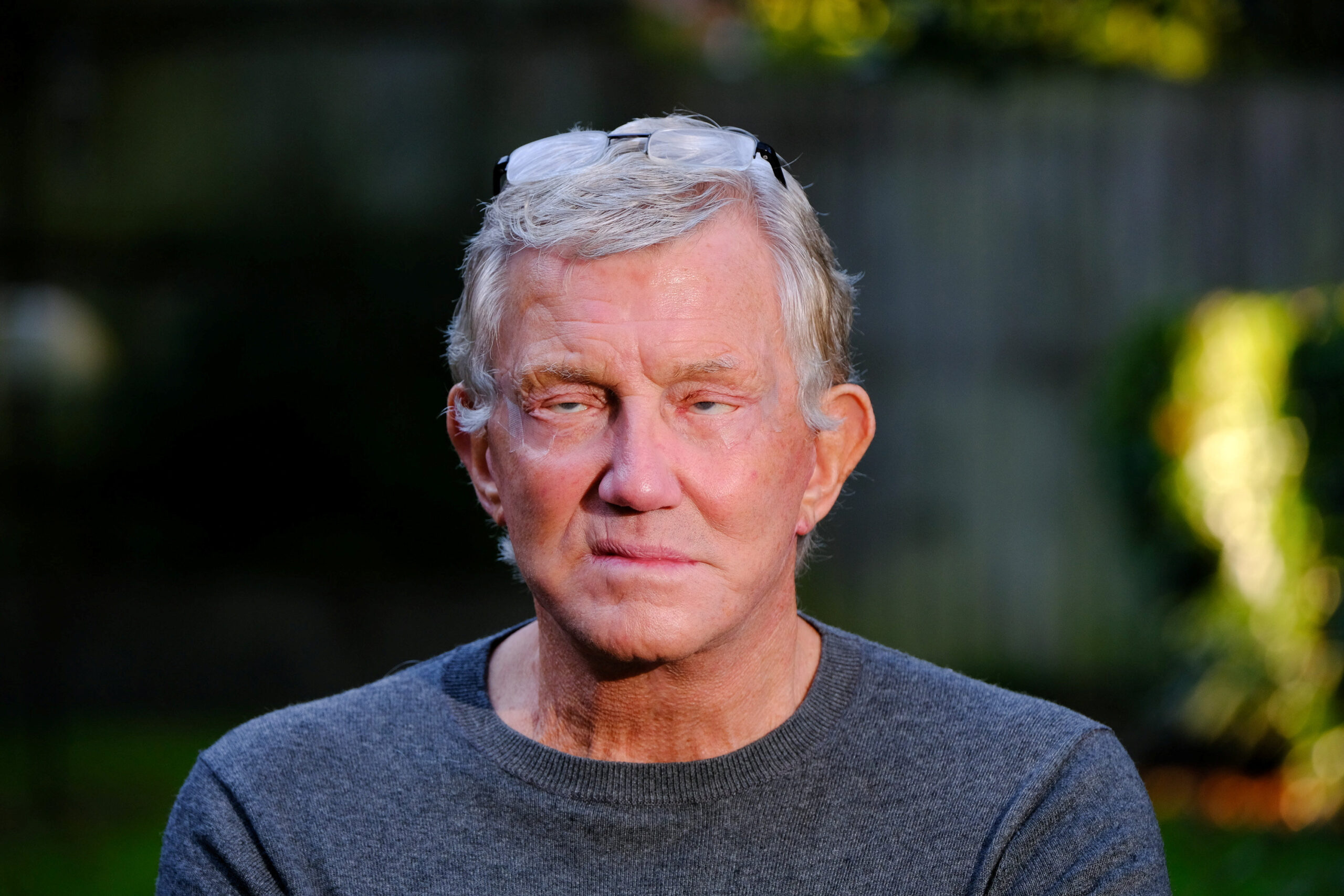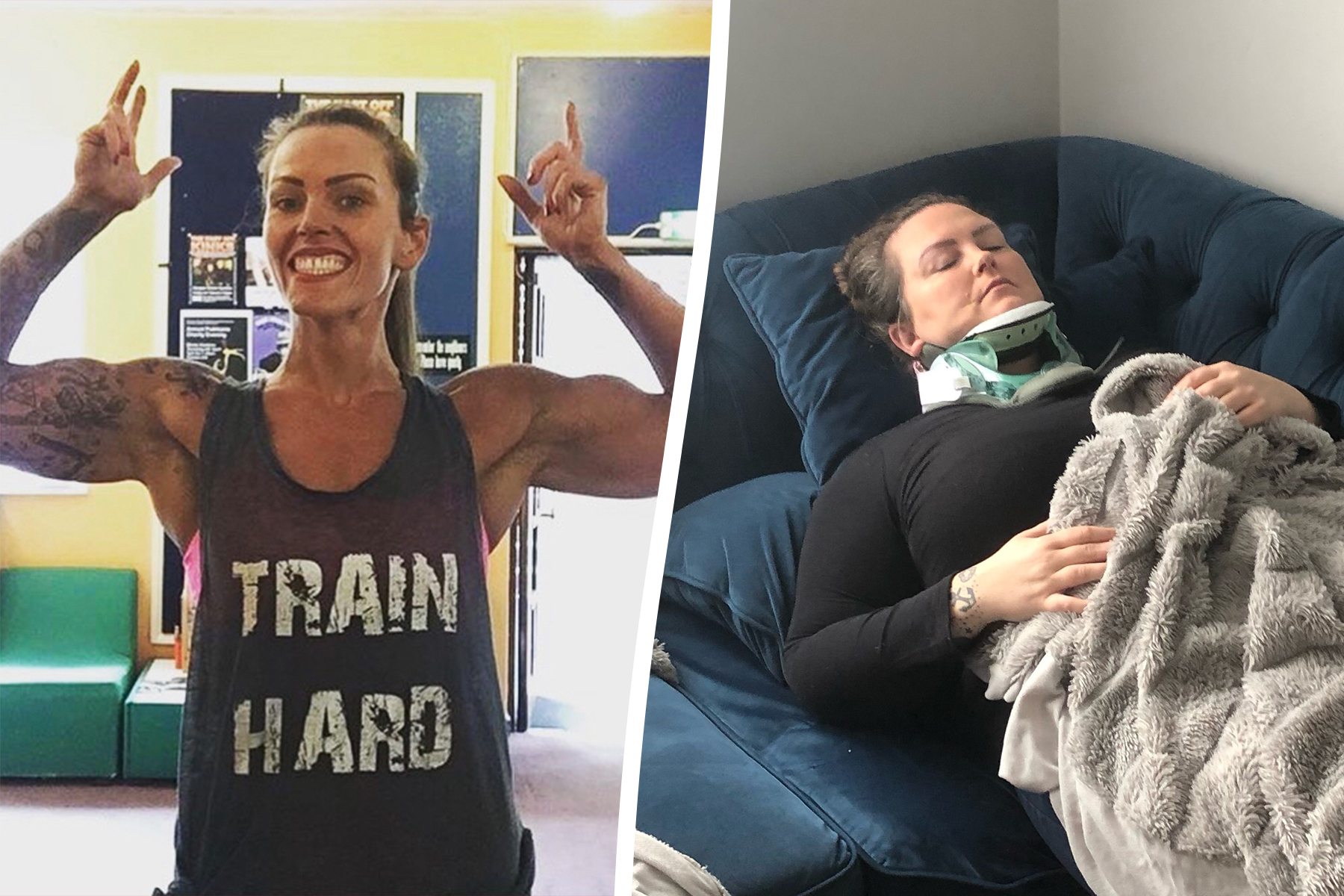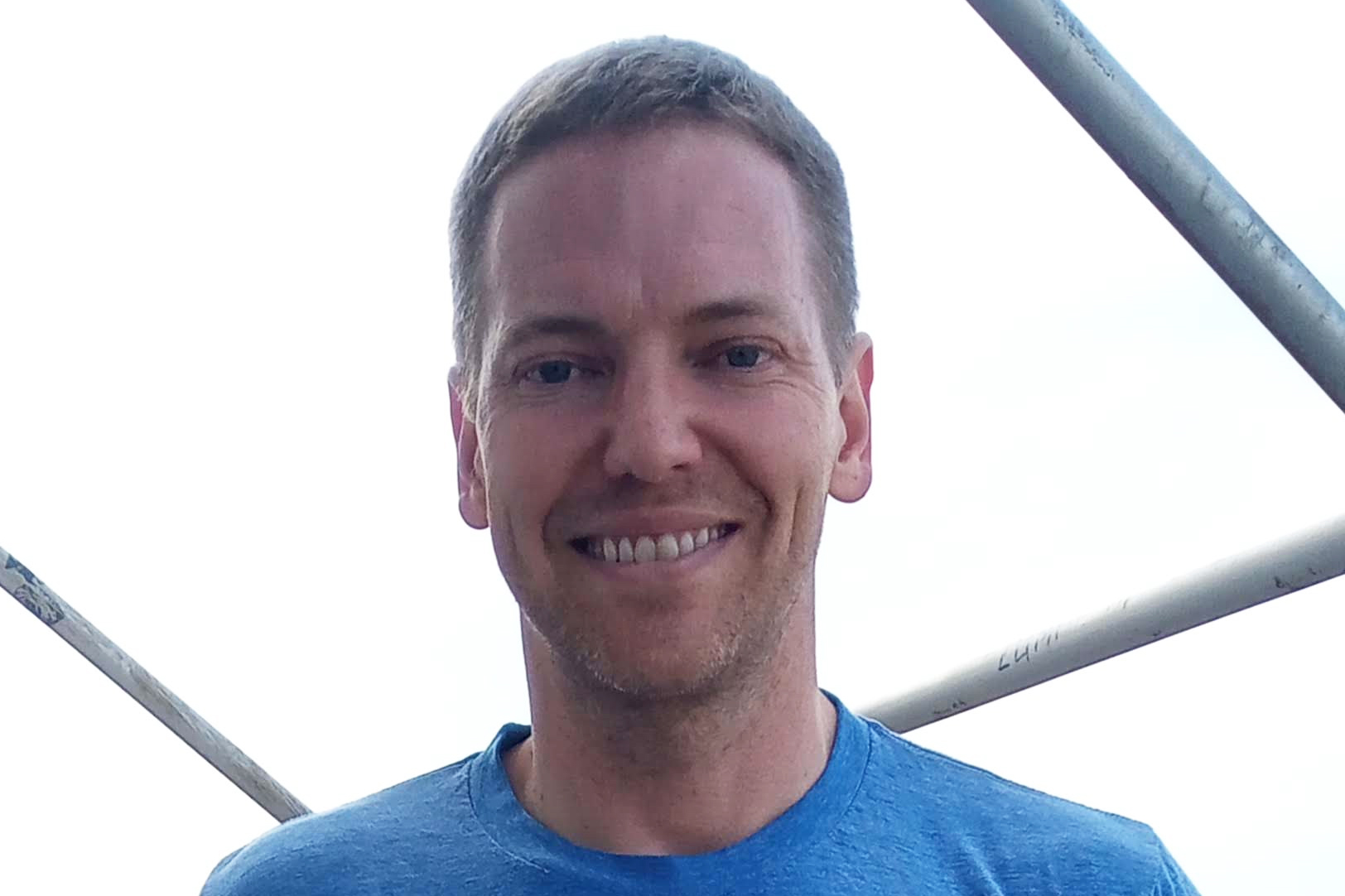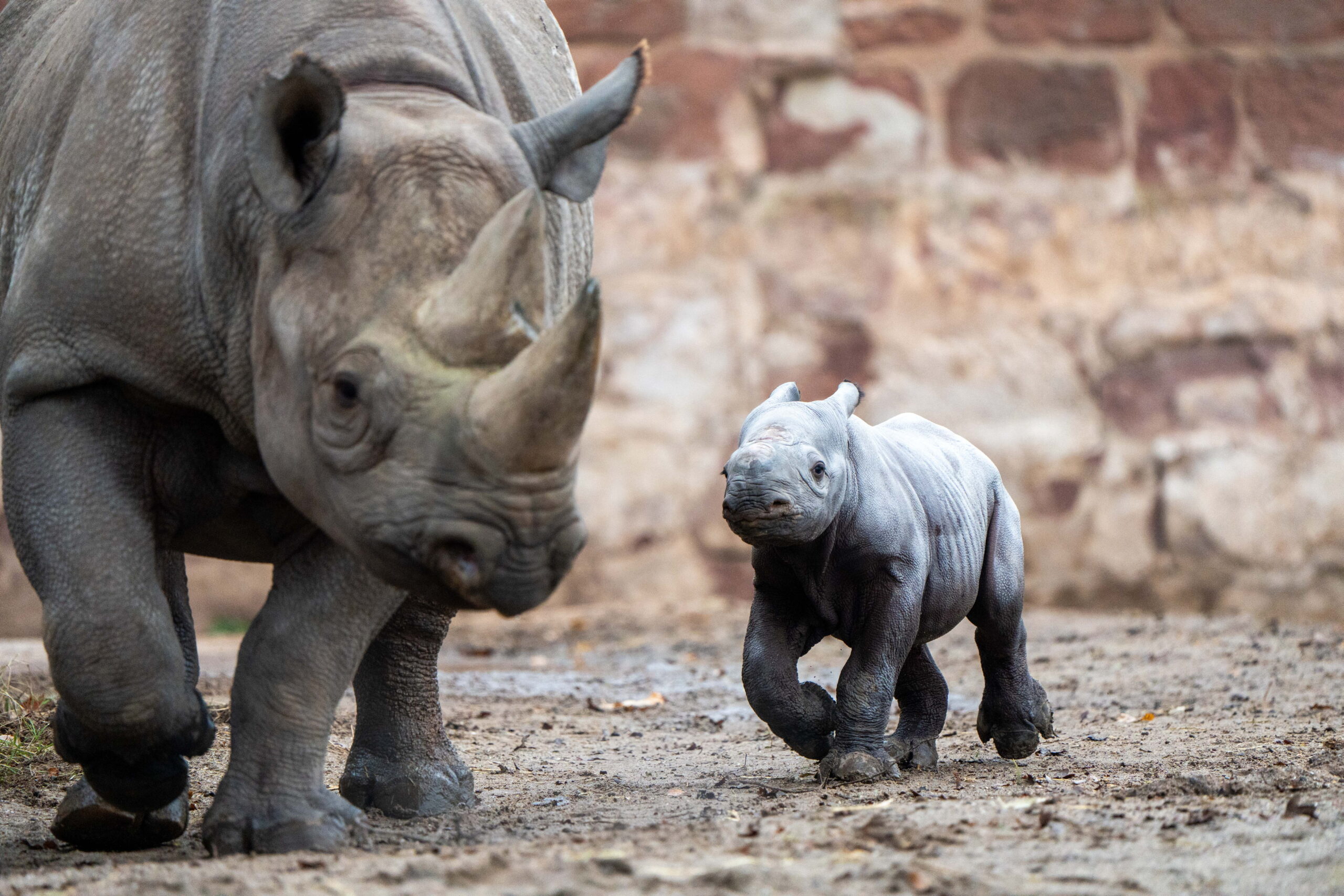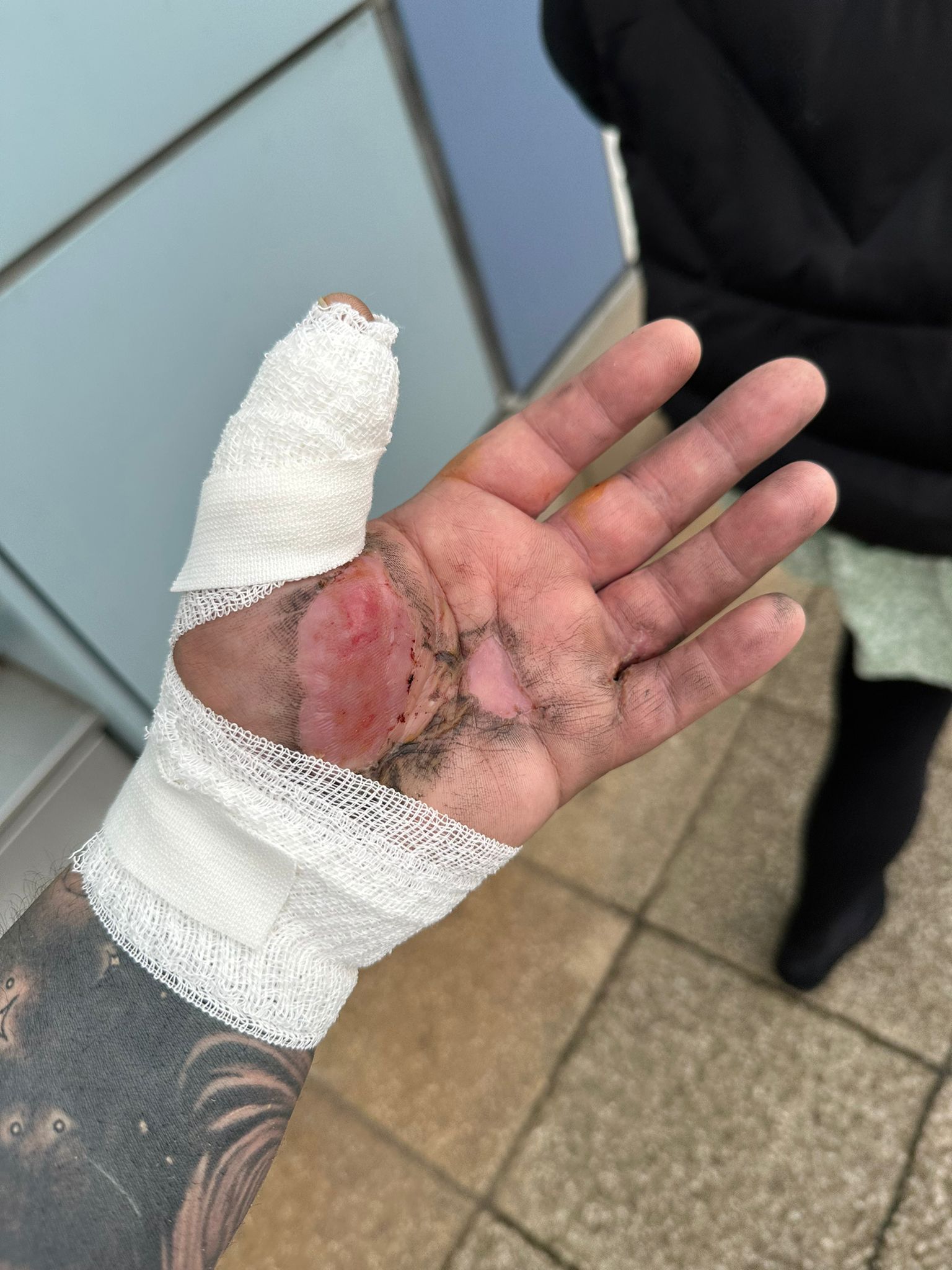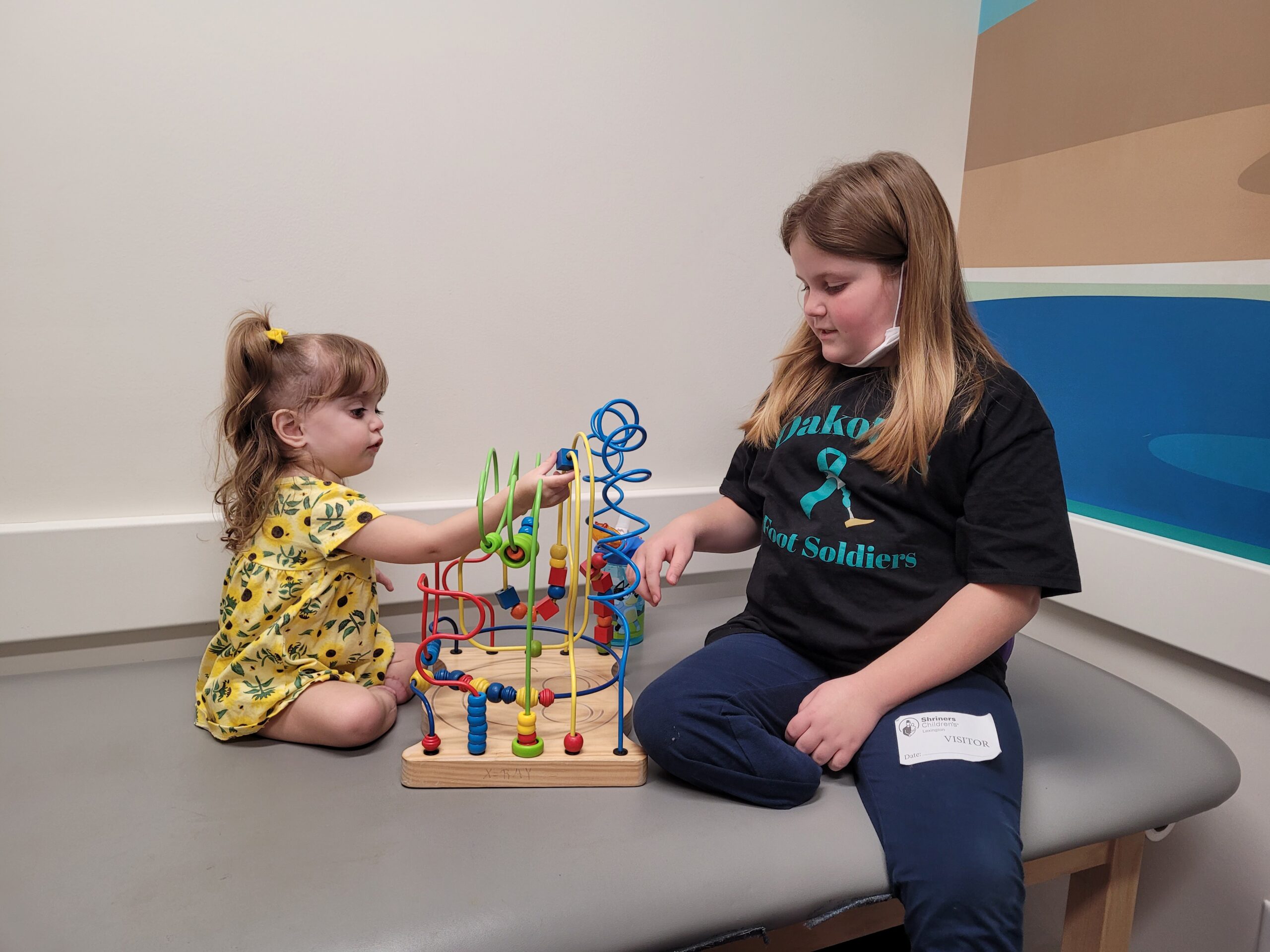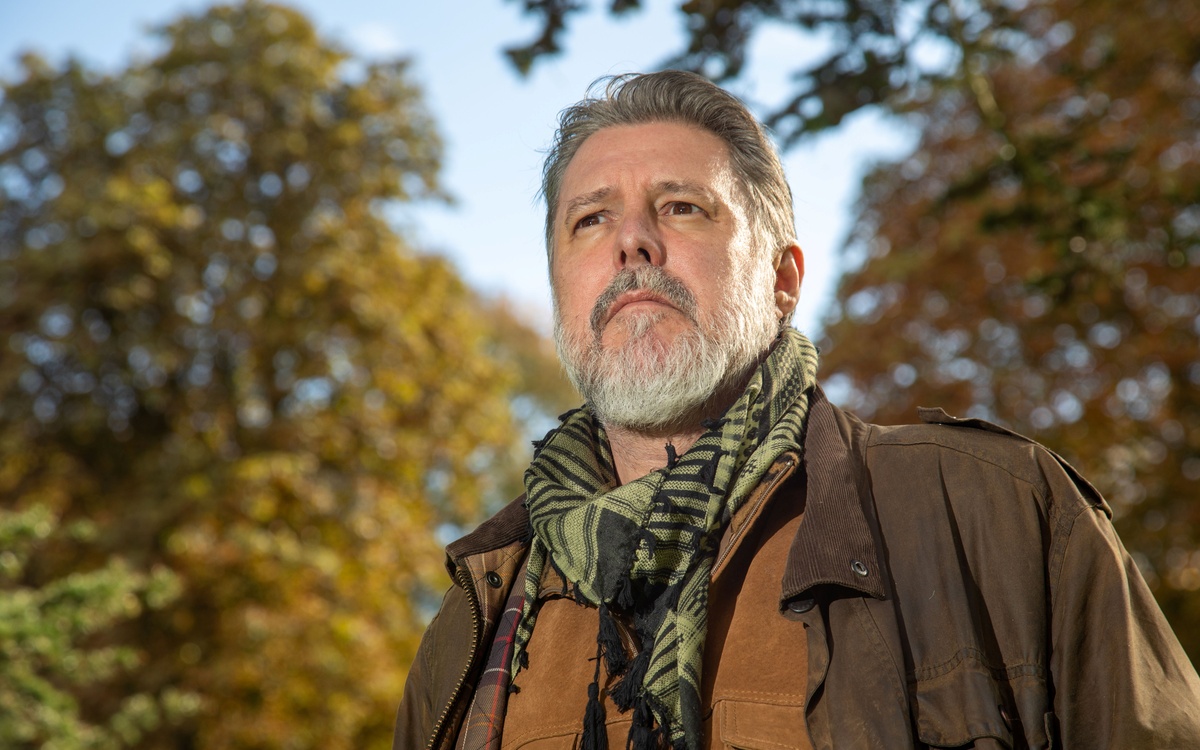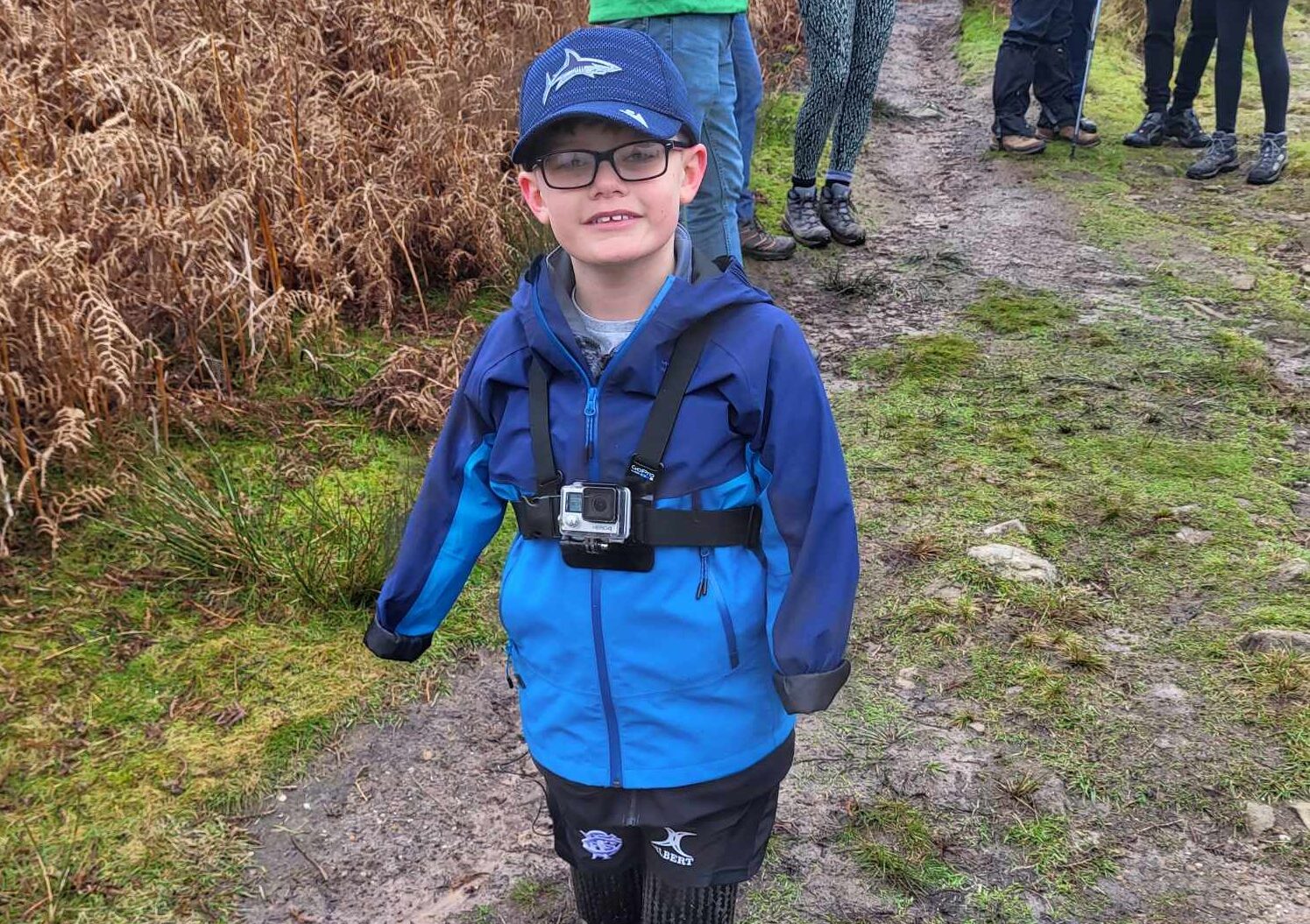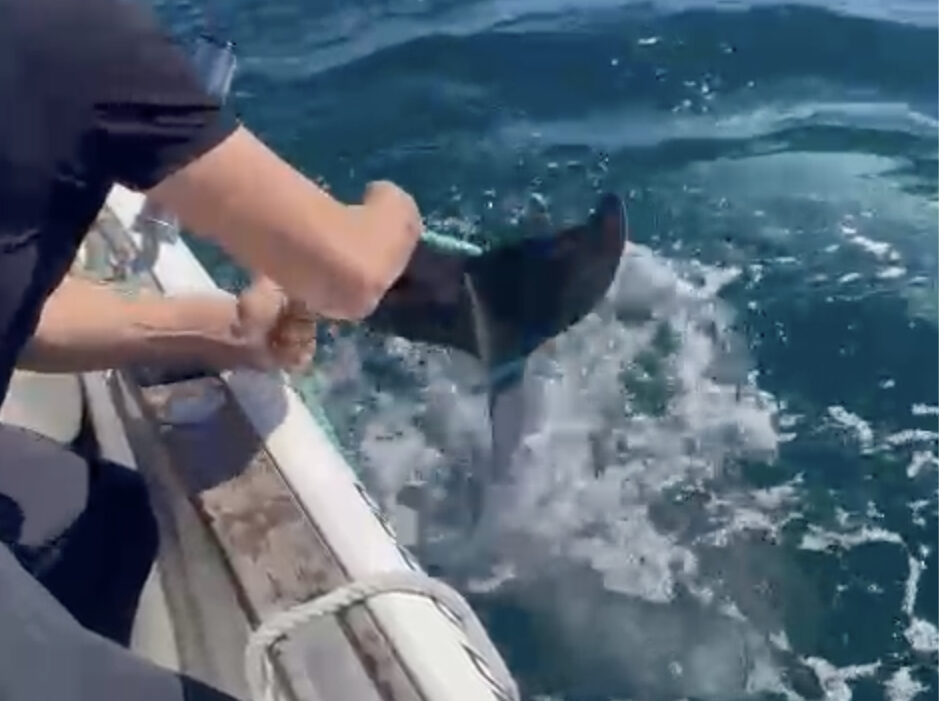"I was unable to close my eyes for more than four years - it's destroyed my life"
A pensioner who was unable to close his eyes for more than four years after surgery complications says the ordeal "destroyed" his life.
Pete Broadhurst, now 81, had a cosmetic operation to fix his "puffy cheeks" in January 2019.
But he claims the surgeon removed too much tissue from under his eyes - leaving Pete unable to close them.
He then spent years dealing with the fallout - even using his pension to fix the issue.
An operation in Thailand in July 2023 finally solved the problem for Pete, and he can now open his eyes.
But the retired painter and decorator, from Birmingham, said: "What happened totally destroyed my life.
"Instead of starting my life, I was obsessed with trying to get this right.
"It would knock me sick to look in a mirror. I tried to warn other people but I didn't know how.
"I have used my pension to make my eyes look right. I had to use foodbanks to save enough money to go and get surgery."
Pete's problem started in 1959, when a tooth problem led to him having enlarged cheeks.
He said: "I had puffy hamster cheeks. Years ago I was in a relationship with a woman and she was leaving me.
"I said, 'why are you leaving when we've got everything? Look at how lucky we are.'
"And she said, 'go look in the mirror, that's why I'm leaving'."
After two further relationships where his insecurities about his looks grew, Pete decided he wanted to get corrective surgery.
The dad-of-two decided late in 2018 to undergo another procedure.
He approached BMI The Priory Hospital in Birmingham - who quoted him £11,000 to undergo a neck lift, under eye blepharoplasty and a rhinoplasty that would help reduce his cheeks.
And, on January 24, 2019, he underwent the nine-hour procedure, and was discharged the next day.
Pete said: "I looked like I'd been beaten up. It was horrendous, and I couldn't close my eyes.
"The day after the surgery I wished I'd never gone."
Pete returned to the hospital two weeks after the surgery to get the stitches removed, and says he told the medics his eyes were very irritated and watering.
But he claims that they told him all was normal and these side effects would pass by themselves.
He then went to the Good Hope Hospital in Birmingham, on March 23, 2019 to have a routine prostate exam.
But the doctor noticed his damaged eyes - and he was referred to Birmingham and Midland Eye Centre.
There he was told his eyes weren’t closing fully when he blinked or slept causing him irritation.
However, the doctors there couldn’t treat him as he had the original surgery privately, so he returned to the BMI.
His surgeon arranged for a free corrective surgery elsewhere for a skin graft to help the skin in his cheeks meet his eyelids.
He then had the hour-long surgery on May 13, 2019 - but the problem still didn't go away.
Pete says he was prescribed eye drops to take eight times a day, and was told to microwave a towel to wrap around his eyes for when he sleeps.
But his vision was so poor he couldn't drive a car or make out people's facial expressions and had to give up his hobby of shooting as he can't see the target.
Desperately unhappy, Pete decided on further surgery.
But he says numerous private hospitals refused to operation on him and the NHS had a year-long waiting list.
Finally, in July 2023, Pete flew to the Origin Clinic in Thailand for surgery to correct his eyes which now means he can see better and sleep comfortably - costing him £4,544 (200,000 Baht).
Pete said: "I can close my eyes which I wasn't able to do so. When I am asleep I can close them which allows me to sleep comfortably.
"I can see clearly now, I don't wear glasses anymore. I used to see dark shades and everything was creamy but now I can see clearly.
"I don't think about my eyes anymore, I couldn't go out without wearing glasses to protect them but I don't need to do that anymore.
"I am normal again, I have no glasses on and I am looking out of my window and everything is clear."
BMI Healthcare was asked to comment on Pete's ordeal.
A spokesman said: "We can’t comment on the detail of individual cases, but we are committed to the highest standards of patient safety and care quality and are investigating this matter thoroughly.
"The surgeon in question is currently suspended as we are mirroring an NHS trust suspension."
"I was a bodybuilder - now I'm bedbound due to condition internally decapitating me"
A bodybuilder in peak fitness after losing 16 stone has been left bedbound by a condition which is seeing her slowly "internally decapitated".
Melody Wakelin, 41, can barely walk and feels ''like a piece of furniture'' rather than a human.
She is facing a race against time raise money for pioneering surgery in Spain after being diagnosed with atlantoaxial instability (AAI).
The condition means her brain is sinking into her spinal canal and her skull is sliding down onto her neck.
Even a slight bump on the head or sudden neck movement could "completely crush" her brain stem and in extreme cases lead to death.
The mum-of-two first fell ill in 2017 - just three weeks after competing in a bodybuilding competition.
She experienced symptoms including tremors, muscle spasms, vision problems and difficulty standing.
Melody went to countless doctors and specialist over the years, but no one could find the cause of her issues.
Doctors even suggested she might have Munchausen's syndrome - where a person seeks medical attention for fake or self-inflicted symptoms.
After doing her own research, Melody found a leading spinal surgeon in Barcelona, Spain, who was correctly diagnosed her in September 2023.
Despite being unsure what caused the illness, the specialist believes it was connected to her condition Ehlers-Danlos Syndrome – which affects her connective tissue.
Her health has now deteriorated to the point where she can't walk – causing her to gain back the weight she had lost.
Melody fears she may "die at any moment" and is desperate to raise £115k to undergo life-saving surgery abroad.
Melody, a former personal trainer and self-employed barber, from Ashford, Kent, said: “I went from being a bodybuilding to be bedbound.
“I can't walk, and I struggle to stand and even sit up now.
"I could be internally decapitated if I bump my head or move my head too suddenly - it's terrifying.
"I've deteriorated to the point where I need a wheelchair to get about and I've lost all independence.
“I’m basically a piece of furniture and can’t move.
"I'm terrified I don't get the surgery, it will get worse, and I'll be left paralysed or die."
Fitness fanatic Melody fell in love with bodybuilding after losing 16.5 stone – going from 25st to 8st 7lbs and a size 8 to 10.
But just weeks after coming second in a competition in 2017, she started experience severe “brain fog”.
Melody continued to experience more debilitating symptoms and had no idea why it began.
She went to “countless appointments'' with NHS and private specialists, including neurologists and surgeons.
She underwent tests, scans and multiple trips to A&E after the symptoms become “unbearable”.
Melody - who lives at home with her two kids Hudson, 11, and Wentworth, 13, and husband Jack Wakelin, 36, a project manager - said: “I had to quit work, and I can’t really look after the kids or even leave the house.
"My kids were five and seven when this first happened - most upsetting for me.
"Always wanted to be a mother and having this happen has completely taken it away from me.
“I ended up gaining the weight back and some doctors suggested that was the cause of my problems.
“I had glimmers of hope with specialist, but all the tests came back clear.
“Some doctors even accused me of faking my symptoms for sympathy.
“I started to lose hope.”
Melody conducted her own research found a spinal specialist based in Barcelona, Spain.
She forked out £4k to flights and private fees including a consultation, MRI and imaging CT scans.
To Melody’s relief, she was diagnosed with atlantoaxial instability (AAI) and occult tethered cord syndrome (OTCS).
Despite getting a diagnosis, she would still need to undergo two rounds of surgery that comes with at a hefty cost at £115k.
Melody said: “The surgery I need isn’t available on the NHS, so either way I’d have to pay.
"My best hope at being treated is with the spinal surgeon I found in Spain because he is one of the top specialists in the world with experience performing this surgery on a person with EDS.
"However it's incredibly expensive, so I'm desperately fundraising."
Melody would need two separate surgeries, which would require two trips to Barcelona.
Her husband has set-up a GoFundMe page and the family are trying to raise £115,000 to cover all the costs.
She said: "I'm really scared, I'm getting worse each day and I'm scared I might die.
"I've read about the surgery being life-changing and it's my final hope.
"I'm scared I won't get to see my kids grow-up and I'll do anything to feel normal again."
https://www.gofundme.com/f/life-saving-surgery-for-melody
ENDS
Is ‘influencer speak’ on TikTok changing the future of the English accent?
A language expert said influencer "TikTok voice" is likely the "the future of English".
Linguistics professor Christopher Strelluf, 43, claims we are seeing a new use of language - fuelled by female influencers online.
The 'TikTok accent', 'TikTalk', or 'Internet voice' is when influencers use a vlogger-style voice and intonation and, as a result, all sound similar.
Christopher, associate professor of linguistics at Warwick University, explained the use of features called 'uptalk' and 'vocal fry' are commonly seen in this style of speech.
He said everyone already uses those features of language but young people, particularly women, are using it in an "innovative way".
Christopher insists it's not a bad thing and suggests it may be the future of the English language.
Christopher, from Kansas City, Missouri, US, said: "This 'TikTalk' is a feature that's been spreading as an innovative thing young people do - and seeing it online might encourage the continued spread of these features.
"In almost all studies of language change, the innovators of language seem to be young women - spread through use by young women.
"In general, the way young women use language is the future of the way language evolves.
"So any changes we hear by young women are probably the future of English.
"TikTok is the evidence of the change that’s happening, because that's where we're seeing it, but the platform is not the cause. The women are the cause.
"It's not a bad thing - it's giving us new ways to use language to manage conversations and negotiate information sharing, so it's making the language better."
Christopher said this new way of speaking sees primarily young women and girls using features in a way that has become known as 'influencer speak'.
According to Christopher, these features include 'uptalk' - "using a rising intonation in declarative sentences" and 'vocal fry', which is "the low gravelly sound on vowels".
He noted this has been linked to celebrities such as Kim Kardashian, Britney Spears, Katy Perry and Ariana Grande.
The features are not new - but may become more common as they're used more and more online by young women and girls.
Christopher said: "Uptalk and vocal fry are already very much part of English.
"Many people use both features when talking as a ‘floor-holding strategy’—in other words, when talking to someone, people often use a rising intonation at the end of a sentence or draw out a vowel to signal, ‘I’m not done talking yet; it’s still my turn.’
"We also use uptalk as a politeness strategy.
"Sometimes if we’re telling people to do something or telling people something unpleasant, we will use uptalk to soften it a bit."
He clarified none of the features of the voice are new, but are used in a certain way to convey meaning.
He said historically, this is how many instances of language development have occurred.
Christopher said: "The normal thing we’d expect is however young women are talking today, that’s what motivates language change going forward.
"Our language is always a product of innovations introduced by young women - so any changes we hear by young women are probably the future of English.
"This is no different - the women are the cause.
"In the future, uptalk used like this will probably be the norm.
"Then TikTok can introduce these changes to more people and encourage young people to adopt those features, that are already part of their language, with greater frequency."
Endangered baby rhino’s birth caught on CCTV in UK Zoo!
This is the incredible moment the birth of an endangered baby rhino was captured on CCTV cameras at a UK zoo.
Keepers at Chester Zoo were left thrilled following the safe arrival of the eastern black rhino, which is one of the world’s rarest mammals.
The female calf was delivered onto a bed of soft sand by new mum Zuri on November 12 at 2.45pm following a 15-month pregnancy.
Rhino experts say it’s unusual for a calf to be born in daylight, which gave keepers the unique opportunity to capture the special moment on camera.
And heartwarming images of the new baby during its first few days of life show her sticking closely to her mum's side.
The zoo's rhino team manager Emma Evison said: “We’d been eagerly awaiting this birth for 15 long months and, as it’s quite unusual for a rhino to give birth in daylight hours, we really didn’t expect it to happen right in front of us as we were going about our day.
"To be able to witness the calf safely entering the world, in front of our very own eyes, was just the most incredible privilege.
“What’s most important now during these first few days is that mum Zuri and her new baby spend some time bonding and getting to know one another.
"So far, the pair have been inseparable and the little one is feeding regularly and already gaining in size and weight.
"She’s very inquisitive and full of energy, which is just brilliant to see."
The eastern black rhino is listed as critically endangered by the International Union for the Conservation of Nature (IUCN).
Fewer than 600 are now found across Kenya, Tanzania and Rwanda and it is said they face a 'very high chance' of becoming extinct in the wild.
Conservationists believe the birth of a healthy calf will help global efforts to prevent the species from disappearing altogether.
Emma added: “Sadly this is a species that, for more than century, has been hunted down and poached for its horn before being sold on the illegal wildlife markets.
"This precious newborn’s arrival is another positive step in safeguarding the species, which is what the endangered species breeding programme in European conservation zoos that we’re a leading part of is striving to do.
"This programme has already showed huge success, with a group of rhinos bred in zoo’s in Europe having been translocated to a protected National Park in Africa.”
The demand for rhino horn, stemming from the traditional Asian medicine market, has seen 95 per cent of Africa’s rhinos wiped out by poaching.
But new figures from this year show for the first time in more than a decade, rhino numbers have increased slightly across Africa due to conservation efforts.
Mike Jordan, director of animals and plants at the zoo, added: “Our efforts to protect this magnificent species extend far beyond the zoo’s boundaries and, while it’s incredibly positive news that conservation efforts across Africa have led to a small recovery in rhino numbers, giving them some much needed breathing space, we know there’s still lots of work to be to done.
“We’re home to the UK’s only zoo-based animal endocrine lab where we’ve developed the skills and techniques to track rhino hormones by closely analysing their dung.
"This has helped us to massively improve the chances of a successful mating and further increase numbers of this critically endangered species.
"The technology is so precise that we’re now transferring it to a specialist lab that we’ve helped to create in Kenya which is helping rangers and vets there to boost the wild population.
“Zuri and her new arrival is testament to the unwavering dedication of conservationists here at Chester, and around the world, who are working to safeguard these incredible animals and ensure that they thrive long into the future.”
"My e-cig exploded and melted into my hand"
A lorry driver suffered horror injuries when an e-cigarette exploded in his hand.
Mike Calver, 38, was changing the battery on his device at home in Stoke-on-Trent, Staffs., when it blew up.
His hand, beard and clothes were set on fire - while the scolding e-cigarette stuck to his hand.
Video shows Mike running to an outside in a bid to douse the flames.
Wife Leanne Calver, 29, came to his aid and rushed him to A&E, where plastic surgeons worked on him.
Mike is now in recovery, but still has scars from the October 29 ordeal. And he wants people to be aware of the dangers of e-cigarettes.
He said: "I bought a new set of batteries on Amazon, and I had loaded them into the e-cig.
"As I clicked the battery it exploded. I was engulfed in flames - my hand, beard, and clothes were on fire.
"I managed to douse the flames pretty quickly. One of the batteries that exploded stuck to my hands and started to melt into my hand."
Leanne, a senior administrator, said: "I was terrified.
"In the moment I had no idea if Mike's hand or fingers had been blown off.
"And at the same time there was a fireball in the kitchen.
"The house was filling rapidly with black smoke and I needed to get Mike to the hospital as soon as possible.
"But I was so concerned about getting back to the house and the dogs, who were terrified as well."
Mike had bought the e-cigarette and batteries on Amazon in September. He then tried to set it up last month.
After the battery exploded, Leanne ran into the kitchen to see if Mike was okay.
And he said: "The house quickly filled with smoke - it was not a nice experience.
"Leanne was in the front room and heard the bang so she jumped up and came into the kitchen.
"I had thrown the e-cig across the room while it was still on fire and it had set fire to the floor.
"Leanne managed to put out the fire and started to freak out when she started to see how black my hand was."
Mike was taken to the Royal Stoke University Hospital, where he waited for hours with his hand in a cold bucket of water.
He said: "The pain was ok when I had my hand in the water.
"But I had to keep refilling the bucket as my hand would heat the water up.
"In between refilling, I would be in excruciating pain."
Mike was then seen by the plastic surgery team at the hospital who performed a procedure to remove the burnt skin.
He said the procedure which lasted just over an hour - and was "horrendous".
Mike said: "They gave me a lot of morphine but the process itself was horrendous. They had to burst all the blisters and cut all the skin away from my hand.
"I was in A&E for six hours and left at 3am the following morning.
"They bandaged my hand up and sent me on my way.
"Living with what I am living with at the moment is not great."
Mike is now on statutory sick pay while he waits for his hand to heal, which could take between four to six weeks.
He wants other people to know how quickly something like this can happen.
Mike said: "The next morning was when it all sank in, it was a harrowing experience.
"I was very lucky that it wasn't on my face and it was just me and my wife in the house.
"I am doing ok now, I have had three plastic surgery consultations and they have taken most of the bandages off.
"My palm is exposed at the minute and will heal itself - thankfully I don't need a skin graft."
Hilarious video shows sheepdog trying to herd 25ft light-up sheep
A hilarious video shows a confused border collie trying to herd a statue - of a sheep.
Daisy, a two-year-old sheep dog in training, was on a walk with her owner Paul Flynn, 60, when she spotted a 25ft light-up sculpture.
Paul was left in hysterics when she started barking at the fake sheep, which has been installed as part of Durham's Lumiere light festival.
The funny footage shows Daisy appearing confused and barking at the statue and trying to round it up as she would a normal sheep.
Paul said: "She's a really fun dog who always has a little bit of a play.
"We enjoy the walk in together and she can walk all the way through Durham city centre off the lead.
"She's a sheep dog in training so she's still not there yet but I just told her to go up to it.
"She sorta run past it and I could see she was a bit worried about it and I wanted her to get over that and realise it was something that's plastic.
"She then had a go at herding it which was kinda funny so I encouraged it further."
They were on their way to East Durham College's Houghall campus when she tried to round up the sheep - which is where Paul works as director of commercial farming.
When they were on their way home from work, Daisy attempted to herd the statue for the second time.
Paul said: "We came back that night and there was a really good crowd of people around the sheep, because it was lit up.
"So I let her go and say hi to the sheep and give it a good barking at, but this time she was on the lead.
"There was people there, including young children and families, so I let her say hello to it.
"But someone did say turn around and say it's made their day because they saw a Collie barking at the sheep."
Paul often takes Daisy to work where she is looked after by the college's animal management students.
He added that everyone who he sees when he's on his way to work, loves to 'cuddle and pet' her.
Paul, of Clara Vale, Tyne and Wear, said: "She's a much loved dog by everyone that I see in the morning.
"She loves to be cuddled and petted by people and she knows that people will want to.
"She's always looking for that chance to say hello to people and make new friends."
“My girls both needed amputations – to give them the chance to walk”
Sisters both needed leg amputations after being born with the same rare condition - despite one-in-a-BILLION odds.
Mum-of-three Tatum Chirpich, 41, was shocked when her daughter Kennedy, nine, was born with a leg deformity.
The condition, fibular hemimelia, led to her right leg being amputated aged 16 months - but the tot quickly learnt to walk on a prosthetic limb.
Doctors told Tatum the condition was not hereditary and the chances of a second child having the same would be "like being struck by lightning twice".
So, she and husband Jeff Chirpich, 47, a truck driver, were gobsmacked when their second daughter, Dakota, three, was born with it as well - despite one-in-1.6 billion chances.
Dakota required both legs amputated - and had the procedure in December 2022 - but she too took to walking on prosthetics with ease.
Tatum says her daughters can do everything able-bodied children can do - despite the common misconception amputation is a "worst case scenario".
She says her girls didn't "lose legs" but instead is grateful the amputations allowed them to "gain mobility" and improve their lives.
Rather than comparing the rarity to being "struck by lightning twice" the family say they "won the lottery twice".
Tatum, a stay-at-home mum, from Nashville, Tennessee, US, said: "When Dakota was born with the condition, I was told I was selfish for having a second child.
"In movies, amputation is always portrayed as an 'end of the world' situation.
"So the misconception is that an amputee child is suffering because they're not able-bodied - I get comments about my girls saying 'poor baby, poor thing'.
"But my girls can do everything any other child can do - in fact they feel sorry for me because I can't take my legs off.
"I want to try to help people see amputation doesn’t have to be worst case scenario - sometimes it's the best."
Tatum and Jeff's first child together, son Casmir, 13, was born able-bodied.
Scans on their second child, Kennedy, didn't show any abnormalities, but when she was born on September 19, 2014, her parents learned she had a rare disability.
Fibular hemimelia occurs as a result of a genetic mutation and affects just one in 40,000 people in the world.
It caused one of her legs to only grow half normal length because bones were missing, and at sixteen months old, she had part of the leg amputated and her tibia straightened so she could be fitted with a prosthetic.
Tatum said: "She was trying to walk at six months old even with her limb difference - she was hitting milestones before her brother did.
"We had to get her a special kind of prosthesis before she even had her amputation because she kept trying to walk.
"When she'd just had her amputation she kept walking on her cast - there was nothing that could stop her."
When Tatum fell pregnant again they never expected their third child would have the same condition - as it due to a genetic mutation, rather than being hereditary.
But their second daughter Dakota, was diagnosed with the same rare condition.
The family are one of just a handful known in the world to have more than one child with the diagnosis.
Dakota's condition is more severe as it affected both her legs as well as one arm.
At two years old, Dakota had the lower region of both her legs amputated, and her tibia bones straightened.
Tatum said: "She is also missing the ulna bone in her left forearm so it's shorter, and she only has one finger.
"But it doesn't stop her from doing anything - except counting to 10 on her hands.
"With both the girls, we try to keep a sense of humour about these things."
Tatum said neither of her daughters have had issues being mistreated or bullied for their disabilities, and they both love their prosthetic limbs.
She said: "Kennedy is in third grade and all the kids are so intrigued by her leg and want to be her friend.
"She gets to change the pattern whenever she gets a new leg each year and all the kids think it's really cool."
The mum-of-three is trying to change the misconception that amputation is a scary or bad thing.
She said: "Any movie you've ever watched, amputation is portrayed in a negative light.
"A character loses their leg and can't cope any more - like it's an 'end of the world' situation.
"The term 'losing a limb' is so negative - I don't say my girls lost a limb, I say they gained mobility.
"If they had kept their limbs they wouldn't have the mobility they have."
Aid worker held by Taliban for five months walked 12 miles a day in cell to stay sane
A British aid worker held by the Taliban for five months has shed light on his horror ordeal - revealing he walked up to 12 miles a day in his cell to stay sane.
Ex-paratrooper Ian Purchase, 50, was arrested in Afghanistan's capital Kabul in May on suspicion of breaking local laws.
He says he was then chucked in solitary confinement until his release in October, where he was "beaten and whipped".
But Ian says the mental anguish was tougher - not knowing what the next hour, let alone day, would hold.
He says he desperately clung to a routine to preserve his mental health and, despite being agnostic, prayed to God.
He constantly paced his 18ft by 14ft cell, often walking up to 28,000 steps in a day - the equivalent of 12 miles.
The dad-of-two, who served in 3 Para from 1995 to 2001, is now safely back home and is coming to terms with what happened to him.
Ian said: “I was kept in solitary. I was beaten and whipped in the first five days of being there.
"But the worst of the pain is the mental side - not knowing why you’re there or if you’ll ever get out. It was hard to tell day from night.
“I’m agnostic but part of my routine was desperate heartfelt praying. I wrote the names of my children, my mum and ex wife on the wall.
"I’d put my fingers on their names and beg God for a sign that they were okay and that I’d get back to them.
“I really believed it to the highest degree. I used all my mind and force to get through.
“Exercise was very important in my routine too. My cell was 30 paces around - about 14 foot by 18 foot.
“I walked up to 28,000 steps per day. That was my target - I never went below 15,000 [steps].
“Walking around in a circle like that has done my hips in but it was necessary.
“Walking helped me stay in the zone to stop the bad thoughts coming in. I knew I just had to have only positive thoughts in my mind to get through.
“I used to drift off into another world to keep the bad thoughts out. As soon as I’d start to see a nasty thought I’d have to shut down on it.
“Any negative feelings - even being hungry.”
Ian, from Salisbury, Wilts., says he was in Afghanistan to set up humanitarian aid for widows and orphans.
He entered the war-torn nation via a train from Uzbekistan in September 2021 because so many routes into the country were closed after the Taliban took control.
Ian says he was then contacted by friends and relatives of someone in Taliban captivity asking if he could help, in March 2023.
He arranged a meeting with a contact and, two months later, on May 6, hopped in a taxi to buy some chocolates to take.
He asked the driver to show him the location of the meeting location.
But he says the cabbie went closer than intended - and Ian was arrested on the spot.
He said: "They just asked for our documents, which I gave them, then they made a phone call and that was it.
"I was hit over the head, handcuffed and taken to this facility, that's where I stayed.
"My ID had always been good enough before.
"I was held in the old national defence building in the centre of Kabul."
Ian was eventually released along with three other Brits - medic Kevin Cornwell, 'adventure tourist' Miles Routledge and a man who cannot be named for legal reasons.
But his prison term was spent alone, he says.
He says he was fed twice a day, often by guards who didn’t speak the same languages as him.
He had to beg for showers and wasn’t given one for the first month - or a change of clothes, he said.
He was given some old history books which he read over and over using lights which were on 24 hours a day.
And there were only very small windows in the back of the cell.
After three months he was allowed to call his mum, and again six weeks later, each time for three minutes.
He said: "It's so difficult - you have no warning so you have no plan of what to say. They just came in one day and let me call her.
"I just kept asking if my kids were okay, if anyone was helping try to get me out, if she knew what was happening.
"I'd just keep repeating that I loved her, and my kids, just over and over. I knew how worried they all were about me."
Ian and the three other men were eventually returned to the UK on October 10
The Foreign Office apologised to the current Taliban administration on behalf of their families for any violations in the laws of Afghanistan.
But Ian said: “We still don’t know the terms of our release. On October 7th the commander came and said ‘You’re being released on the 10th'.
“I had no idea if it was true. They moved me into the same room as Kevin and the other man.
“We just waited and worried. We had no computers phones or passports - we lost the lot.
“Finally we were put on a flight to Dubai and then on to the UK. Nothing beats seeing my family again. It was such a relief.
“At the same time it’s very hard. There’s a lot to recover from, and I can’t go back to the life I had before.
“I have no money, nothing. All my stuff is all still there and I can’t go back again.
“I was arrested there once before but released after six weeks - it wasn’t like this.
“And it was a real mission to get into the country. I used a lot of my old Afghan contacts who are connected to the Taliban.
"I wouldn’t be able to do that now."
Despite his ordeal Ian says he harbours no ill will towards Afghans, or Afghanistan as a country.
He said: “I would love for people to be able to go there for holiday. It’s a beautiful country.
“It’s stunning and I'm privileged and lucky to have been able to go there and have driven all over it.
“But it’s just not safe at the moment.
“It’s just not the right time - if you don’t have the right documents at a checkpoint anything can happen.
“And if nothing else, who’s going to insure those holidays?”
Ian was reunited in the UK with his teenage children, his mum and his ex-wife.
A Foreign, Commonwealth and Development Office (FCDO) spokesperson said previously the UK government “regrets this episode”.
A statement reported by the Guardian said: “On behalf of families of the British nationals, we express their apologies to the current administration of Afghanistan for any violations of the laws of the country.”
Scott Richards, a co-founder of the Presidium Network, a British not-for-profit organisation that works in conflict zones assisted the men, posted on X after the release.
He said: "Mr Cornwell and the three other British Nationals which includes Miles Routledge have been released and have left Afghanistan. They are coming home!
"Thank you to everyone for their support of these men during this difficult period. We are all relieved."
Young quadruple amputee's incredible climb raises £12k for disabled kids
A selfless ten-year-old quad amputee feels 'on top of the world' after raising over £12,000 for other disabled kids - by scaling a 656ft mountain.
Luke Mortimer felt “very proud” to summit Embsay Crag, in North Yorks., dubbed his ‘Everest’, so he could “return the favour” to charities that had helped him.
The kind-hearted youngster was just seven years old when he contracted the severe bacterial infections meningococcal meningitis and septicaemia.
Although he survived the deadly illnesses, he lost all his limbs and needed 23 painful surgeries over a ten-week period to replace missing skin and address his wounds.
Luke’s family later relocated to a bungalow in Embsay, near Skipton, which volunteer group Band of Builders helped his dad, Adam Mortimer, adapt for him in September.
But ever since the move in 2019, the plucky lad has had ambitions to summit the nearby crag, which he can see from the garden of his rural home.
Following his successful summit on Saturday (Nov 4), Luke said he was amazed to have raised so much money - after initially hoping to make just £500.
He said: “It was tough, but I felt on top of the world.
“I’m really happy, and as well as that, I’m also pretty shocked. I thought we’d just get to £500, next minute we’re at over £11,000.
“At the top, I told everybody ‘I want you to shout, ‘We’ve cracked the crag’, and we all shouted it.
“It was tiring and tough, but when I got to the top I was very proud of myself. Everybody was really kind for coming out to support me."
Luke's dad Adam, 49, said 40 hikers had journeyed from all over the UK to climb the peak with Luke and hailed his son’s efforts as a “massive achievement”
He was also surprised at how much money they’d raised for charities LimbPower and the BBC’s Children in Need - after Luke appeared on its show last year.
Adam said: “We had some people who had seen the challenge on the news and had come from Sheffield and Chesterfield.
“We did it in a little over two hours, which was pretty good going. It was a massive achievement to get up. Luke was super proud. It was brilliant.
“It was great to get over £10,000. A big thank you to all the people who came out, who supported us and donated to us. It really meant a lot.”
Luke, previously a keen rugby player for Skipton RFC in North Yorks., was first struck down with meningococcal meningitis on December 13, 2019.
And he was transferred to Sheffield Children’s Hospital, where doctors found life-threatening septicaemia, also known as blood poisoning, had developed in his body.
Writing at the time of the incident John Firth, a family friend who set up a donation page for him, said his rugby-mad family’s life had been “turned upside down”.
He said: “Luke was a budding 7-year-old rugby player, a bundle of joy who even at a young age had embraced life and every day was a happy day.
"His whole family was part of the rugby community, with his dad coaching many age-grade youngsters and his mum, running a children’s rugby kit recycling stall, so that the young boys and girls, always had the right gear to play and train in.
"However, whilst the rest of us were buying and wrapping presents ready for Christmas, the family's life was turned upside down.
"Luke’s young life was saved, however, the disease has taken its toll on his little body.
"He has proven he is a fighter, however, his life and the life of his mum, dad and his big brother will never be the same."
Over the next few years, Luke endured endless sessions of physiotherapy and rehabilitation, while always wearing his trademark beaming smile.
He later learned to walk - and run - on prosthetic legs.
And after receiving £15,000 worth of donations from an army of well-wishers, he also got his first robotic ‘hero’ arm so he could do more for himself.
The Bungalow where Luke now lives with his brother Harry Mortimer, 14, and mum Christine Mortimer was previously changed for a man who was paralysed.
And volunteer organisation Band of Builders later helped his dad Adam fit it with a remarkable range of new adaptions, which were unveiled on September 3 this year.
Adam previously described Luke’s two-mile challenge, which began from Embsay Reservoir at 10am on Saturday morning, as his ‘Everest’.
He'd said: “For Luke, this is a huge thing. It’s above a normal walk for even me, so for Luke, it’s quite a tough challenge. It is kind of his 'Everest'.
"If you just did it purely on his stride, it’s half of anybody else’s. So it’s almost like if I’m walking a mile, he’s walking two."
Visit https://www.justgiving.com/crowdfunding/adam-mortimer-4 to donate to Luke's appeal.
Fishermen rescue baby dolphin trapped in net as its mother held it afloat
This is the moment a pair of fishermen rescued a baby dolphin trapped in a fishing net.
Jose Ramón Pérez, 27, and Miguel Rodríguez, 36, were fishing 10km off the coast of Almería, Spain when they found the animal tangled in a net.
The two men spotted the young dolphin thanks to its mother, which had been desperately trying to keep her baby afloat.
The baby's tail was tangled in a rope and was being pulled underwater - almost drowning it.
But its mother would not leave its side and kept trying to lift it and keep its head above water.
José Ramon, a warehouse worker, and Miguel, a greenhouse owner, rushed to the baby's help after seeing the mother lift her flank above the waterline.
The pair believe she was asking for their help.
Jose Ramón, who is from El Ejido, said: "I saw something floating but it wasn't actually floating at the surface. It was underneath.
"Miguel said it was a dolphin but I thought it was strange because it hadn't moved at all.
"The mother put her side out of the water. She was trying to call us.
"When we got there she didn't leave our side for a second.
"She was holding its head up the whole time and the rope was even chewed."
Jose Ramón and Miguel called local authorities, who put them through to Equinac, a local conservation charity.
Equinac concluded that the situation was too dire to wait for their arrival and assisted the fishermen over the phone.
The rope was tied to an anchor and the dolphin, but with guidance from the charity the pair was able to cut the rope.
Although injured, the baby was able to swim off with its mother.
Jose Ramón said: "It was so hard to pull it up. I could feel it chafing our hands as we did it.
"I could see blood on the dolphin's tail from where the rope had cut it.
"They were panicked. The baby was thrashing around and screaming.
"When it did that the mother seemed like she was scolding it and trying to calm it down.
"As much as I try I can't express how it felt to be there. I was nervous and I was so sad for the baby. I don't know how long it had been there.
"I will remember this for my whole life. it was a truly magical moment."
Eva María Morón, a coordinator at Equinac, said: "If those boys hadn't been there, the baby would have died. This animal owes them its life."
Equinac also claims that the trap was placed there illegally by a known culprit.
She added: "We know who is responsible for the traps and he has been reported to the police.
"It's a massive problem that we fight against every day. We find these things every day.
"Not all dolphins live to tell the tale."


